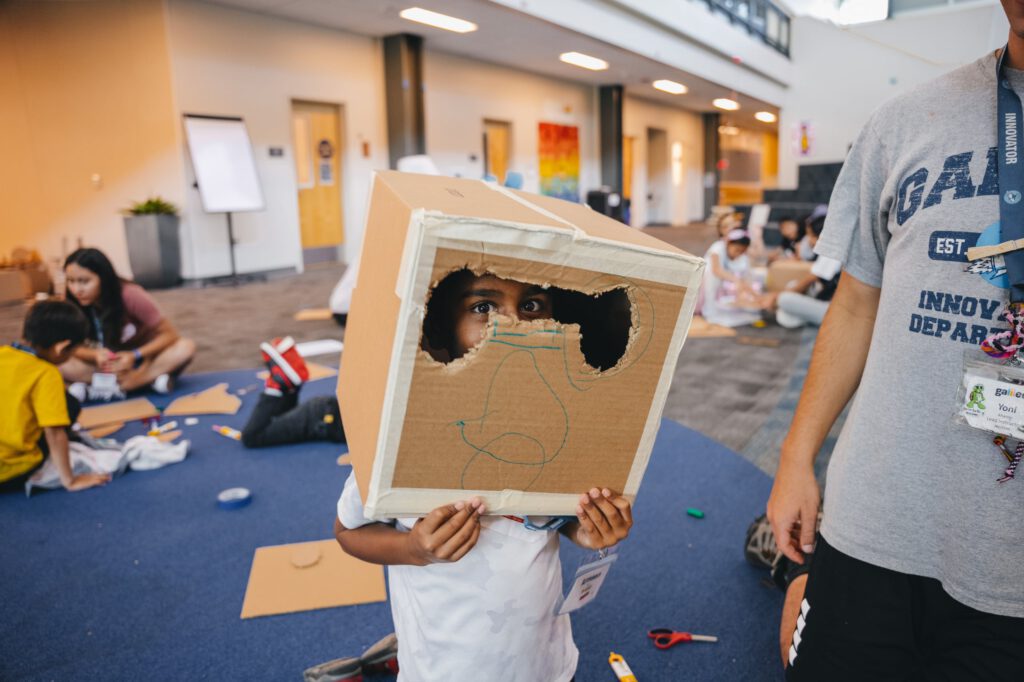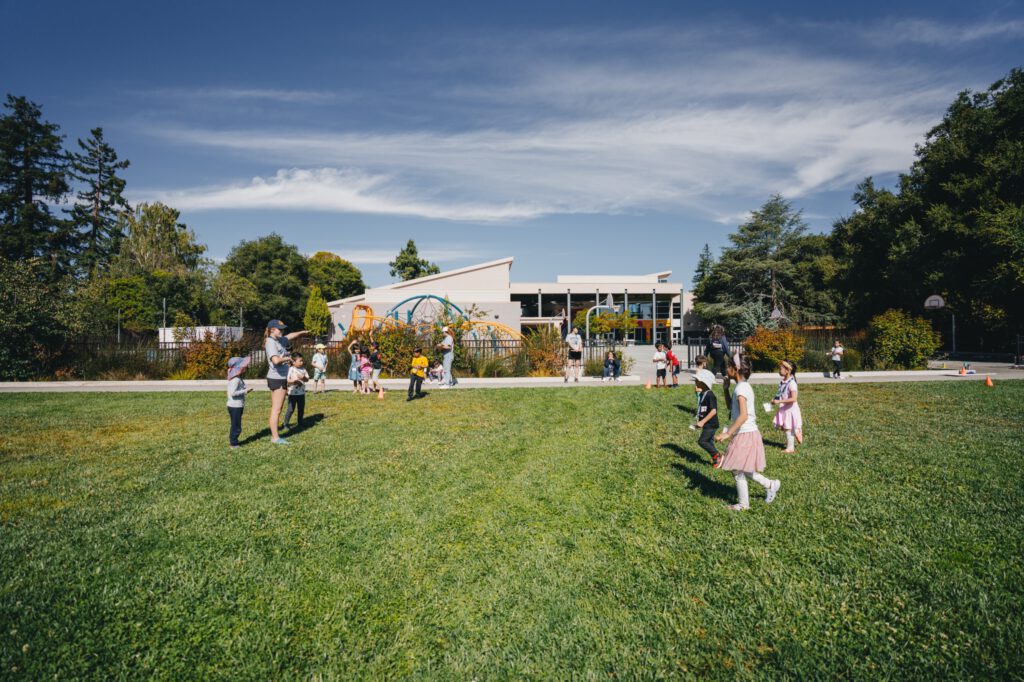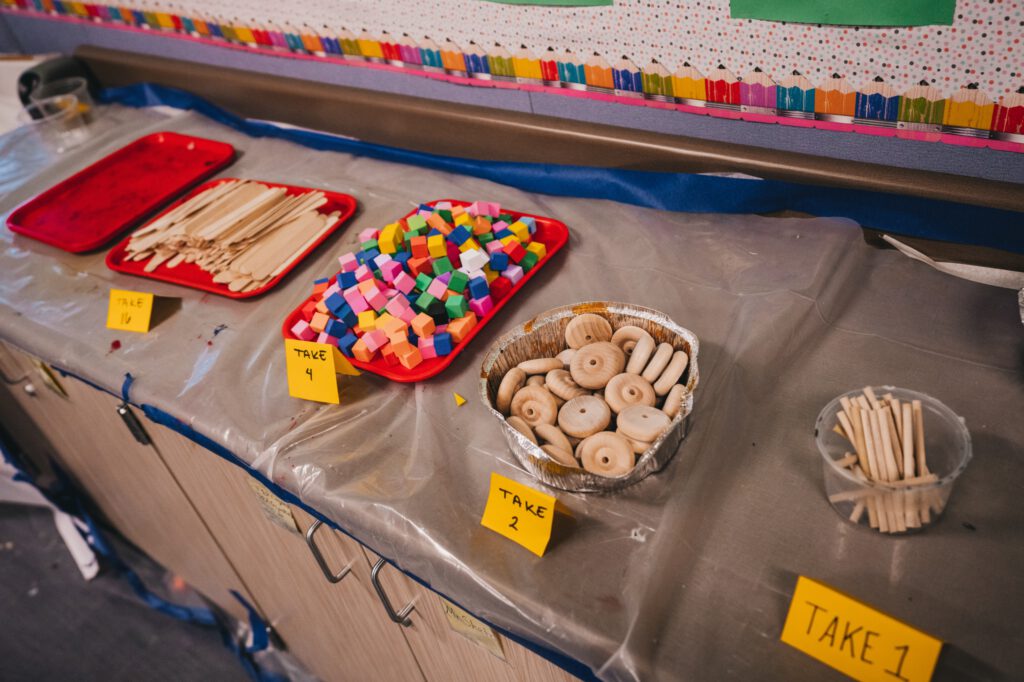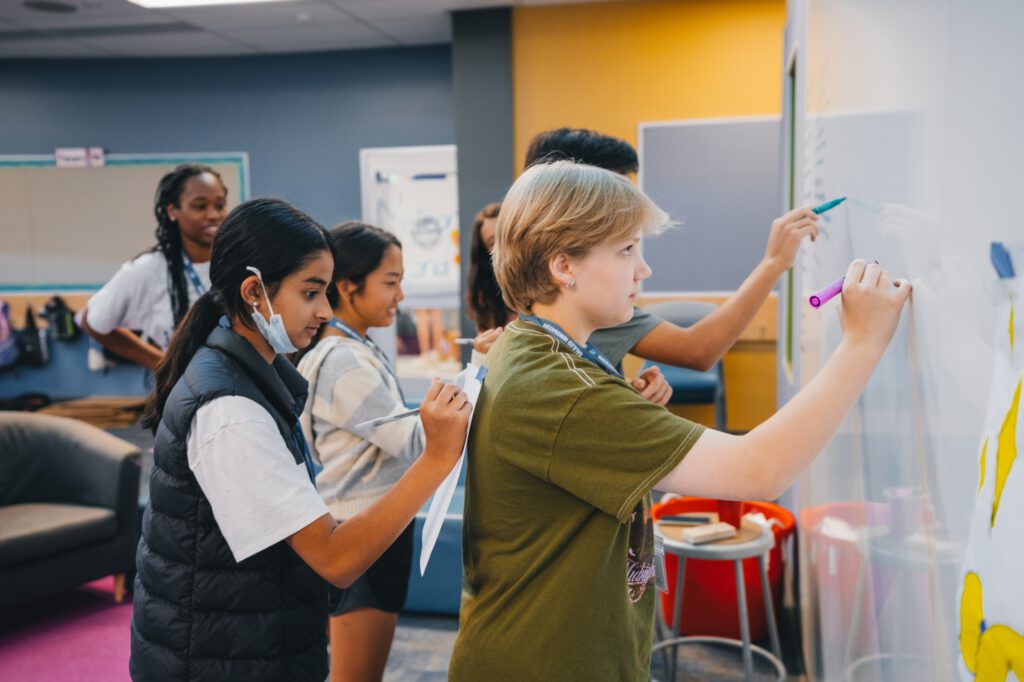Virtual reality: total science fiction stuff—or is it? Defined by the Virtual Reality Society as the combined meaning of the separate words: virtual (close to) and reality (what humans perceive), virtual reality is a computer-generated image that is close to what humans naturally perceive in their environment. A lot of practical and exciting applications are becoming evident as people gain exposure and experience with this multifaceted technology application, from psychology to medicine. Believe it or not, besides its entertainment value, the many surprising uses and applications of virtual reality can expand kids’ minds, and summer camp offers an ideal opportunity to explore this interesting and very useful technology.
Innovative Technology
As a technology breakthrough, virtual reality uses a headset that blocks the wearer’s sensory cues from the environment and replaces them with computer-generated audio and visual content. It is an innovation of older 3-D technology that used stereoscopic images to make objects appear three dimensional. But more interactive than 3-D movies, virtual reality headsets track and respond to the wearer’s eye movements. Newer headsets have decreased the problem of motion sickness that plagued earlier models, making them more comfortable. And though virtual reality may be synonymous with gaming, there are a growing number of applications in a wide variety of contexts.
Endless Possibilities
In the realm of entertainment, VR makes it possible to attend a concert or sporting event without actually traveling to the stadium. It enables virtual museum visits and tours of other countries. Virtual time travel is also possible, allowing for visits to historical events, courtroom recreations and simulations based on archaeological digs. Learning about other times and places becomes an exciting, immersive experience.
Perhaps an even wider array of practical applications has been realized in medicine. As distraction therapy, VR helps to reduce pain during dental procedures and even childbirth. It is also being used as an adjunct to conventional therapies for spinal cord injuries, and thanks to the brain’s plasticity, is helping patients recover movement and function. Virtual reality can be used as a means to relive trauma, thus providing a way to treat post-traumatic stress, phobias and anxiety disorders. VR is also being used to help autistic kids and young adults practice and develop social skills.
It isn’t just patients seeing the benefit of virtual reality. Medical and dental students are practicing procedures virtually before trying their skills on actual patients. In fact, many professionals are using VR on the job. In industry, testing potentially dangerous products becomes much safer when conducted virtually. VR allows architects and designers to model in three dimensions: in fashion, landscape design and city planning. Safety testing of cars, drivers and emergency procedures is possible through the application of virtual reality. And many newly hired employees are being trained through virtual reality simulators, including members of the military and astronauts.
As an educational tool, virtual reality is teaching teens to drive; some insurance companies even offer a discount for participating drivers. Remote learning and virtual meetings are becoming more common, as is visualizing data in three dimensions. VR is also a unique aid for meditation, allowing users to transport themselves to the setting of their choice. And social justice advocates are finding virtual reality a powerful tool for educating policymakers and potential donors, enabling empathy by allowing the user to step into someone else’s shoes.
In other words, the reach of VR is far beyond just video games, and kids who are exposed to this technology can reap its benefits early.
Getting Kids Involved
Though the applications of virtual reality are expanding rapidly, kids’ opportunities to get involved are still somewhat limited. Few schools have access to the necessary technology. Galileo Summer Quest offers a VR major for kids entering 5th – 8th grades. This week-long program offered at locations in the San Francisco Bay Areas gives campers the chance to envision and present a virtual reality story of their own creation. GSQ provides a fun and engaging introduction to this high tech field with support from expert mentors. With access to the latest VR hardware and software, kids will go from being technology users to content creators. As they learn to code, telling their own story in a virtual environment, the project will challenge multiple centers of kids’ brains making this a truly interdisciplinary experience.
As part of a collaborative design team, campers will learn to give and receive feedback. Through the Galileo Innovation Approach®, they will learn a process for testing and improving their project. This empowering process will benefit kids’ future creative projects at home, at school, and perhaps someday, in careers, giving them confidence and independence. The technical skills learned at camp will be invaluable, increasing their comfort level with these 21st-century technologies.
The Future Is Here
Though once regarded as a futuristic technology, virtual reality is increasingly available in a variety of contexts and industries. To give kids a behind-the-scenes experience, where they not only use VR technology but are also empowered to create with it, check out an innovative camp like Galileo Summer Quest. Through this unique week at camp, kids will use technical and creative skills to program the environment, characters and action that tells their story. Though it may be their first experience with virtual reality, the growing popularity of VR uses and applications suggests it will not be their last.
Check out the opportunities to experience virtual reality in the San Francisco Bay Area. Enroll in a camp session or sign up for our mailing list to keep up-to-date with camp happenings and innovation resources. Or, for more information about Galileo camps, contact us here.





